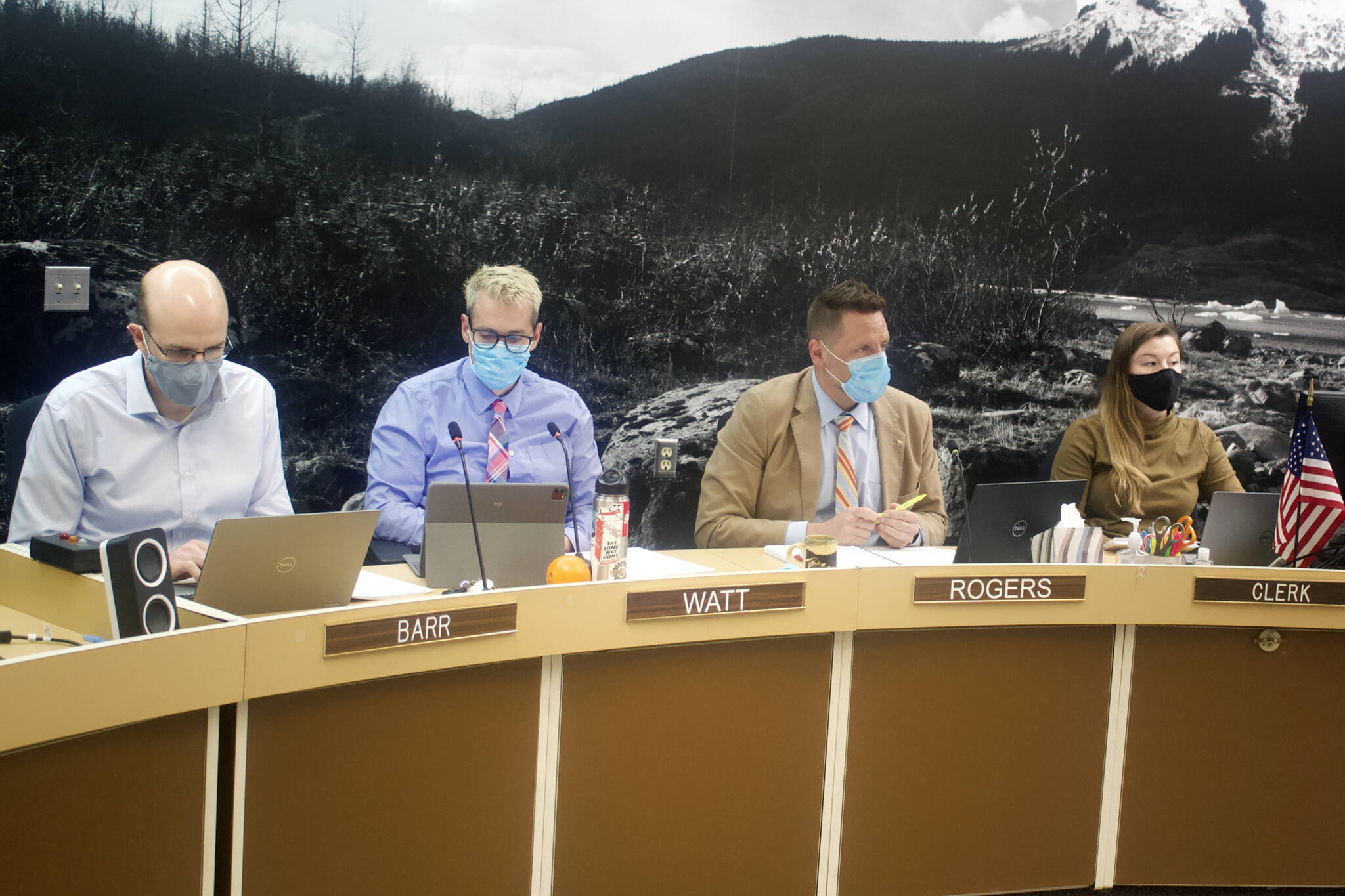The first thing to know is a lot is unknown about next year’s “really unusual” proposed city budget since, even if the worst of the pandemic appears to be over, plenty of lingering impacts remain, City and Borough of Juneau Assembly members were told Wednesday night.
“We have the next seven Wednesday nights to figure things out and eventually you have to make a lot of decisions,” said Jeff Rogers, the city’s finance director, during a finance committee meeting intended to provide an initial broad overview of the draft budget. “Tonight is just to get rooted, more details on various pieces will come to you.”
There’s a proposed 0.1% increase setting the property tax mill rate at 10.66 mills, for example, but homeowners may feel significantly more impact due to residential property increasing by an average of more than 9% in assessed value during the past year. And while the budget projects a nearly 90% increase in fees largely related to cruise tourism, it also expects a 68% drop in federal funds since no further pandemic-related assistance is forecast.
[With federal funds falling away, city readies its budget]
City leaders will also grapple with the same unpredictably high inflation that residents face, but at the governing level there are both positives from the income it generates along with the negatives of higher costs — not to mention the amount of inflation is vastly different for items ranging from fuel to property to flat-screen TVs, Rogers said.
One certainty is the assembly is beginning the evaluation of next year’s proposed $408 million budget, which is $26.9 million lower than the current year, with a $3.4 million deficit that will grow larger.
“What’s not in the budget yet is the negotiated budget increase that the assembly is talking about in executive session,” Rogers said. “So that’s a big placeholder.”
The city faced a $5.4 million deficit in the current year’s budget, which turned into a $7 million surplus due to cuts made by the assembly and subsequent federal funding that allowed services to generally continue undisturbed, he noted. But there’s a different mindset for the year ahead.
“The budget generally assumes that the pandemic stays with us, but shifts toward an endemic that we manage not as a personal health emergency,” Rogers said.
Notable projected increases in income compared to the current year are a 24.4 % increase in sales taxes, 10.7% in charges for services and 89.7% in licenses/permits/fees — all to some degree due to tourism returning to near-normal levels. Also notable is an expected 6.4% increase in property tax revenue, factoring that commercial assessments rose at a considerably lower level during the past year than residential properties.
The increase in service charges also includes revenue expected from a new mental and behavioral health facility at Bartlett Regional Hospital. That facility also accounts for 51 of the 57.5 more full-time-equivalent employees the budget anticipates, with nearly all of the remainder being 5.5 harbor technician positions necessary to meet U.S. Coast Guard port security requirements and redesignate existing positions.
Among the questions raised by assembly members is if the proposed budget is overly pessimistic in its deficit projection.
“It’s alarming we have this deficit, but my memory is pre-pandemic we constantly underestimated revenues,” said Assembly member Michelle Bonnet Hale. She acknowledged “we’re coming out of this two-year period of time where who knows what’s going to happen” and therefore a conservative mentality is warranted, as long as it’s not overly so.
City Manager Rorie Watt emphasized “this is a really unusual budget” that’s a moving target due to “highly volatile numbers.” Among the many things to consider is if some of the city’s reserves balance should be used to cover a shortfall while also looking ahead to future years where “we really can’t hang our hats on what those years will look like.”
“For me I think the best thing that I can articulate…is let’s not overreact,” he said. “I think the public appreciates that nice, stable governmental approach.”
Additional finance committee meetings to review the proposed budget are scheduled April 13, April 20, April 27, May 4, May 11 and May 18. The public will be able to comment on the city’s operating budget, Juneau School District’s operating budget, capital improvement plan and property tax mill levy rate at a public hearing during a regular Juneau Assembly meeting at 7 p.m. April 25.
• Contact Reporter Mark Sabbatini at Mark.Sabbatini@juneauempire.com.

